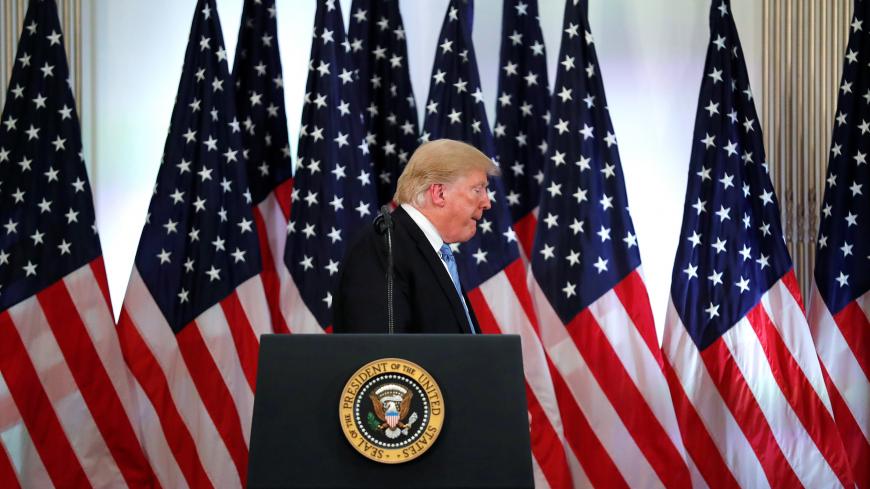There were no apparent surprises at the United Nations General Assembly meeting on the Middle East this year. Not in speeches delivered there, not in press conferences and not in talks held on its sidelines. However, this year’s session could actually point to a surprising shift in the relationship among the sides of the linchpin triangle consisting of the US administration, the government of Israel and the PLO leadership.
Ostensibly, all the players adhered to the roles in which they were cast for this annual performance. US President Donald Trump spoke about resolving the Israeli-Palestinian conflict in his nonbinding role as a sideline observer. He “likes” the two-state solution, he told reporters after his Sept. 26 meeting with Prime Minister Benjamin Netanyahu, only to revert to an even less binding commitment on the following day to support any solution the two sides favor. While Trump did not go back on his intention to present what he calls “the ultimate” Israeli-Palestinian peace deal, he is unwilling to commit to the timing of its unveiling — maybe in two months, maybe in three, maybe in four. In any case, according to Trump, Israel was dealt a better hand when he moved the US Embassy from Tel Aviv to Jerusalem this past May, and will have to compensate the Palestinians within the framework of this long-gestating deal.


